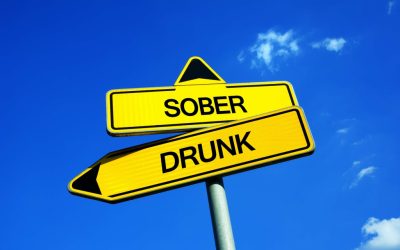So it will focus on dealing with alcohol first rather than converting glycogen to glucose. If you really want to drink alcohol, being diabetic, you should drink it with responsibility. If you want to try several drinks or alcoholic beverages, you should also drink water in between. If you are diabetic and you have witnessed some health issues, consult your doctor as soon as possible.
Avoid drinking on an empty stomach, as this will quickly increase the amount of alcohol in your bloodstream. Also avoid binge-drinking or sustained drinking, and never substitute alcohol for your meals. That’s why it’s best to talk with your healthcare provider about drinking alcohol when you have diabetes and how (or whether) you can do it safely. Drinking alcohol in moderation has also been linked to a number of other health benefits, such as increasing the amount of good cholesterol (HDL) in the blood. This may help lower the risk of heart disease, which you’re at greater risk for if you have type 2 diabetes. The body uses the hormone insulin to help glucose move across cell membranes, out of the bloodstream and into the cell where it is used for metabolism.
Insulin corrections?
Other researchers observed that the prevalence of neuropathy in type 1 diabetics increased in a linear fashion with the alcohol amount consumed (Mitchell and Vinik 1987). Those researchers also reported that diabetics who consumed more than eight standard drinks per week developed peripheral neuropathy faster than can diabetics get drunk did diabetics who consumed eight or fewer drinks per week. Ketoacidosis typically occurs in patients with type 1 diabetes who completely lack insulin. In rare cases, however, the condition also may affect people with type 2 diabetes. In a milder form, ketoacidosis may even occur in people who are fasting.
- Be aware that oat, rice, and soy milks contain carbohydrates, and many nut milks contain a minimal amount of protein.
- Around 90 percent of all adults with diabetes have type 2, and some people will also have pre-diabetes.
- The patient’s combativeness may be the result of hypo- or hyperglycemia, so restrain the patient as necessary and perform a thorough assessment.
- LDL cholesterol levels tend to be lower in alcoholics than in nondrinkers (Castelli et al. 1977), suggesting that chronic alcohol consumption may have a beneficial effect on cardiovascular risk.
- Accordingly, it promotes gluconeogenesis and the breakdown of glycogen into glucose.
- This is especially important if you use insulin or other medications that can cause hypoglycemia (low blood sugar).
- The pharmacist added high blood sugar levels can affect your mood.
So it’s important to be aware of the risks and take steps to avoid them. It should be obvious that the distinction between the patient who is intoxicated and the patient experiencing a diabetic emergency can be blurred. When the conditions are ripe, it can become very easy to mistake one for the other. The body tries to excrete excess glucose through the urinary tract by forcing the patient to urinate excessively (polyurea). As dehydration sets in, the body triggers a thirst reflex, causing the patient to drink more fluids to compensate (polydypsea). Some studies have suggested that red wine can have a beneficial effect on diabetes, but the evidence remains uncertain.
Crafting the Perfect Beer: Discover the Art of Beer Making
The amount of carbs or sugar alcohols you eat can depend on your age, weight, activity levels, or other factors. Def talk with a doctor or registered dietitian before you make major changes to your diet. If someone chooses to consume alcohol, they should have food with it and keep a close watch on their blood sugar. Because even moderate alcohol consumption can adversely many aspects of health, the negatives seem to outweigh the positives. “You need to know if your medications or any diabetes-related conditions you have could be seriously affected by alcohol consumption,” emphasizes Harris.
- If someone with diabetes chooses to drink alcohol, the ADA recommends limiting consumption to a moderate intake.
- For example, Arky and colleagues (1968) studied five diabetics who experienced severe hypoglycemia after ingesting alcohol.
For example, if you’re taking metformin, a drug commonly used for type 2 diabetes, you might experience weakness, fatigue, a slowed heart rate, dark urine, and more. These are all symptoms of a dangerous condition called lactic acidosis. People with diabetes are twice as likely to have hypertension (high blood pressure) as those without. Drinking, especially heavy drinking, can lead to high blood pressure.
Hypoglycemia
The ADA does not forbid a person with diabetes from consuming alcohol, but they do not advise it either. If someone with diabetes chooses to drink alcohol, the ADA recommends limiting consumption to a moderate intake. This translates to one drink per day for females and up to two per day for males.
Excessive or binge drinking is defined as having more than five alcoholic beverages in a two-hour time span for men, or four for women. Some alcoholic drinks are worse than others when you have type 2 diabetes. Certain types of alcohol are especially high in carbs and sugar, even if you drink them straight. This happens when the body doesn’t produce enough insulin or does not respond to insulin as it should. This can cause fatigue, confusion, pale skin, and in extreme cases, unconsciousness. To prevent hypoglycemia, it is best to avoid drinking on an empty stomach, and to eat something before and after drinking.
Insulin and alcohol
Be aware that oat, rice, and soy milks contain carbohydrates, and many nut milks contain a minimal amount of protein. Make sure to check the packaging carefully to pick the right product for you. Whether you choose green, black, white, or oolong tea, avoid teas with added sugars. For a refreshing taste, you can make your own iced tea and add a few slices of lemon.


